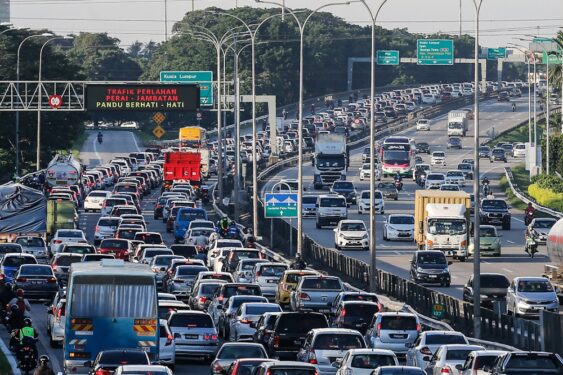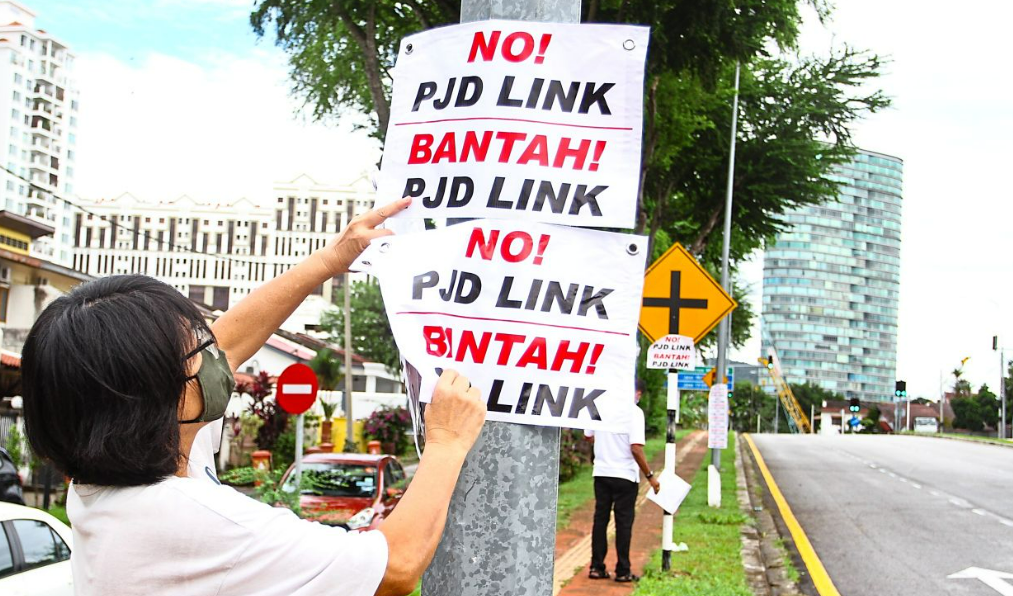I AM totally flabbergasted by the persistence in which PJD Link (M) Sdn Bhd seeks to have the Petaling Jaya Dispersal Link (PJD Link Expressway) elevated highway built, despite strong protests from the residents of Petaling Jaya.
Developers like PJD Link seemingly choose to forget or fail to check that building elevated highways is inconsistent with the local planning policies of Petaling Jaya. This, in itself, is sufficient to end all talks or construction of elevated highways.
On Monday (Oct 3), a media release was issued by PJD Link where it declared its desire to seek a listing on Bursa Malaysia Securities Bhd through a reverse takeover (RTO) of Main Market-listed Scomi Energy Services Bhd.
It said its shareholders, PJD Link Holdings Sdn Bhd and Noblemax Resources Sdn Bhd, had entered into a framework agreement with Scomi Energy.
It is not an issue for any company to be publicly-listed.
However, recall how Bursa Malaysia, in 2017, suspended investment holding company Premier Nalfin due to its failure to restructure its operations after it terminated its share sale agreement with Emrail Sdn Bhd, Mangniplan Sdn Bhd, Noblemax Resources Sdn Bhd and Lingkaran Hartaniaga Sdn Bhd.
Emrail was one of the companies that attempted to take over Premier Nalfin to implement the Kinrara-Damansara Expressway (KIDEX) but failed due to the withdrawal of the then Selangor Government in 2015.
It is worrying how definitively PJD Link stated its intention to build the elevated highway despite it being an enormous project, estimated at RM922 mil.
How can Bursa approve such listings?
One wonders if Bursa Malaysia can approve such listings in such circumstances, which is made more difficult because there is no proposal submitted to the state or local Governments; no real approval made by either authorities; and does not seem to have any real foreseeable sources of income.
Besides that, to date, PJD Link has not carried out any environment, social and transport impact assessment studies on the project and every statement that it has issued were filled with promises to the public that eventually the studies will be carried out.
That was more than three years ago.
Many residents in Petaling Jaya are extremely worried about the elevated and tolled highway that might be running across, above or cutting into their properties.
Their houses are not just an asset that can be bought over the counter; they symbolise the stability, livelihood and friendship that they have built over the years.
I am one who supports more efficient public transport that provides access to as many as possible and reaches the necessary destinations such as hospitals, schools, recreational centres and libraries. After all, public transportation is a social service for the people.
At the same time, it will help to generate income for local businesses, their workers and their neighbourhoods as they engage in economic activities; a US study showed that every US$1 spent on public transport will bring back US$4 in economic returns.
Yet, such simple logic seems to go over the heads of PJD Link.
“Highways and flyovers don’t reduce traffic jams”
We don’t need multilevel highways and elevated flyovers as they do not reduce traffic congestion but only shift congestion from one pain point to another.

On the other hand, the seemingly new route is still impractical as it cuts into massive residential and commercial areas, uprooting many residents and companies and likely needing to make massive property acquisitions to make way for a highway that may not even serve its purpose.
Presently, there are new future solutions to urban congestion and reduce the negative impact of climate change at the same time. For instance, Cancun, Mexico is planning for a forested smart city where it will be able to absorb 116,000 tonnes of carbon dioxide with 5,800 tonnes of CO2 stocked per year.
What is interesting to me is its plan to build a future neighbourhood, which includes an internal electric and semi-automatic mobility system where it will enable residents to leave their cars on the outskirts.
On the other hand, in Chengdu, China, a Dutch architecture firm is proposing a car-free masterplan that is supported by a smart mobility network with a walking distance of about 10 mins to reach all buildings within each zone.
As we see the rise of these new futuristic efforts, we need to demand the same of our developers to think, plan and build with similar green and sustainable ideas to counter present challenges like traffic congestion as well as recreate liveable housing areas and recreational amenities for young, old, less-abled students, professionals and businesses.
These may seem to be big ideas but underlying these ideas are about getting governance and environmental sustainability set in the right direction and making planning people-oriented and not just for profits.
As mentioned before, we can start with some of these ideas:
- Build smart, underground mass transit trains and/or road systems as it will reduce land acquisition costs, have zero demolition of properties, reduce shifting of existing structures and utilities, reduce pollution during construction and even consider timed transport entry into targeted busy town areas within Petaling Jaya;
- Provide more frequent and well-planned public buses and encourage massive public awareness to use more public transport, which will reduce our carbon footprints. Have them in tandem with an underground mass transit transport system;
- Encourage urban sprawl so as to reduce the burden on the centre. This means having the foresight and vision to develop well-planned new cities, towns and housing areas; and
- Provide mobility incentives for both residents and commercial and industrial companies to encourage them to move out of the centre.
Developer PJD Link – listen carefully to the concerns of the Petaling Jaya residents before you make any foolish investment.
I’d like to reiterate my call for more viable solutions to traffic congestion and move towards a much happier, carbon-free young, aged and infirmed society in Petaling Jaya that also has greater mobility access.
As long as I am still the Petaling Jaya MP, I will oppose unsustainable elevated toll highways running through the city that will cause more harm than good when there are many better environmentally sustainable alternatives and better use of public lands. – Oct 5, 2022
Maria Chin Abdullah is the PKR MP for Petaling Jaya.
The views expressed are solely of the author and do not necessarily reflect those of Focus Malaysia.
Main photo credit: The Star









